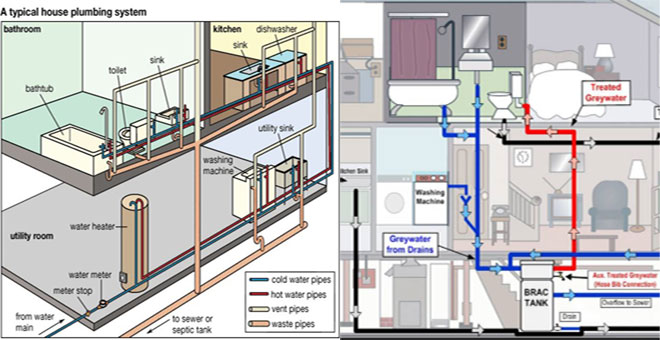
Mastering Plumbing Systems: A Comprehensive Guide
Understanding the intricacies of plumbing systems is essential for homeowners. From basic maintenance to troubleshooting common issues, this comprehensive guide will empower you with the knowledge needed to master your plumbing systems and ensure they function smoothly.
1. Introduction to Plumbing Systems
Plumbing systems are the lifelines of our homes, responsible for delivering clean water and removing wastewater. Familiarize yourself with the basic components, including pipes, fixtures, and appliances, to gain a foundational understanding of how your plumbing system operates.
2. Types of Plumbing Systems
There are various types of plumbing systems, each designed to meet specific needs. From potable water supply systems to drainage and vent systems, understanding the purpose and functionality of these systems is crucial. Learn how they work together to maintain a healthy and efficient plumbing network.
3. Components of a Plumbing System
Delve into the key components that make up a plumbing system. Pipes, faucets, toilets, water heaters, and drainage systems all play integral roles. Familiarize yourself with the materials used in plumbing, such as copper, PVC, and PEX, to make informed decisions when it comes to repairs or upgrades.
4. Maintaining Your Plumbing System
Routine maintenance is vital for the longevity and optimal performance of your plumbing systems. Implement preventive measures, such as checking for leaks, insulating pipes, and flushing water heaters regularly. These practices will help you identify potential issues before they escalate into costly repairs.
5. Troubleshooting Common Plumbing Issues
Equip yourself with troubleshooting skills to address common plumbing issues. From leaky faucets to clogged drains and running toilets, learn how to diagnose problems and implement effective solutions. Understanding the root causes allows you to tackle issues confidently.
6. Water Conservation Strategies
Incorporate water conservation strategies into your plumbing habits. Explore technologies like low-flow fixtures, consider rainwater harvesting, and fix leaks promptly to minimize water wastage. Sustainable practices not only benefit the environment but also contribute to lower utility bills.
7. Upgrading Plumbing Systems for Efficiency
Explore opportunities to upgrade your plumbing systems for enhanced efficiency. Consider installing energy-efficient appliances, upgrading to a tankless water heater, or opting for smart plumbing technologies. These upgrades not only save resources but also add value to your home.
8. Dealing with Emergency Plumbing Situations
Be prepared to handle emergency plumbing situations with calmness and efficiency. Know the location of shut-off valves, have essential plumbing tools on hand, and understand when to seek professional help. Quick and informed action during emergencies can mitigate damage.
9. Hiring Professional Plumbing Services
While DIY efforts can address many plumbing tasks, some situations require the expertise of professionals. Understand when it’s appropriate to hire a licensed plumber for complex installations, major repairs, or when dealing with intricate plumbing systems.
10. Resources for Ongoing Learning
Plumbing systems are dynamic, and ongoing learning is key to mastering them. Explore resources such as online tutorials, plumbing forums, and workshops to stay informed about industry updates, new technologies, and best practices. Continuous learning enhances your ability to manage and optimize your plumbing systems.
Conclusion: Empowering Homeowners in Plumbing Mastery
Mastering plumbing systems is a journey that empowers homeowners to take control of their home’s essential infrastructure. By understanding the intricacies, implementing preventive measures, and staying informed about advancements, you can ensure that your plumbing systems function seamlessly. For additional guidance and resources on mastering plumbing systems, visit Plumbing Systems and embark on a journey to become a plumbing-savvy homeowner.
